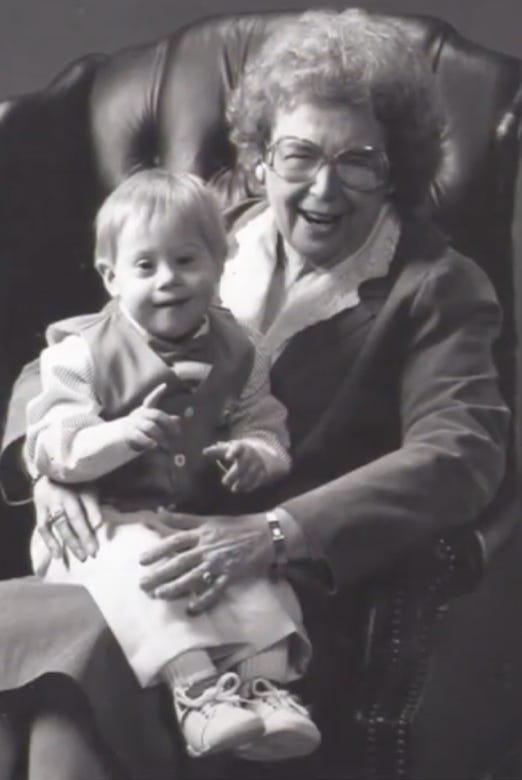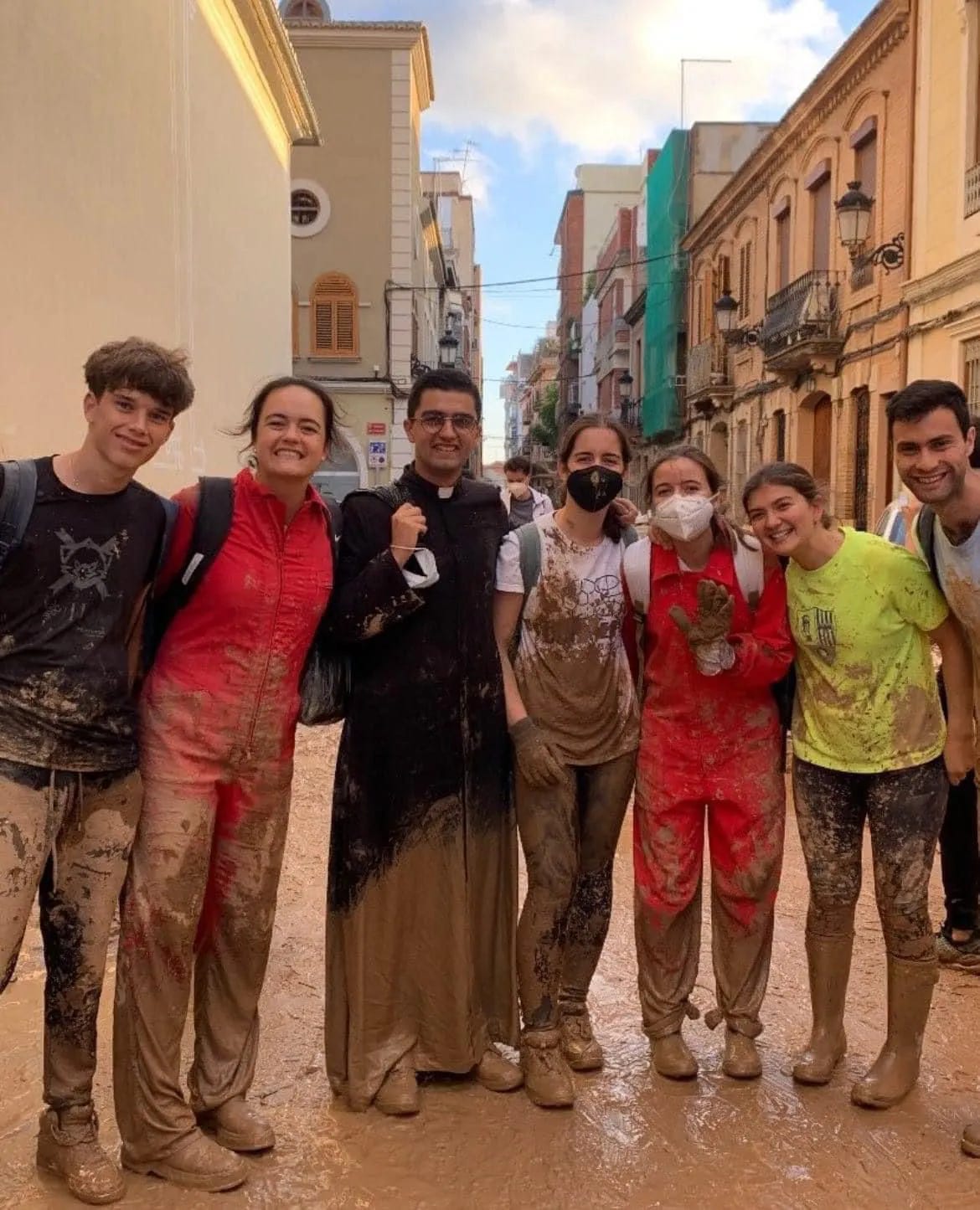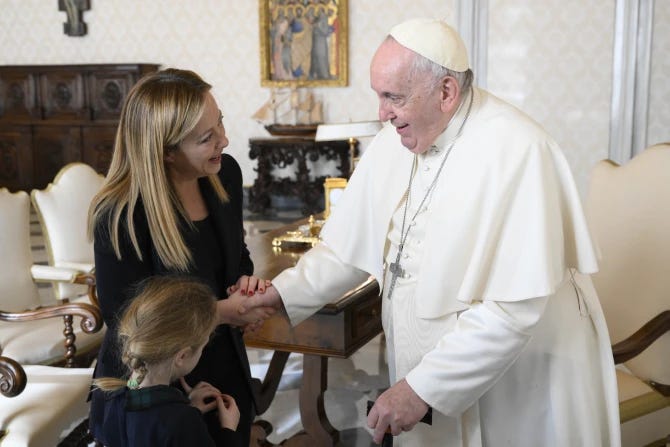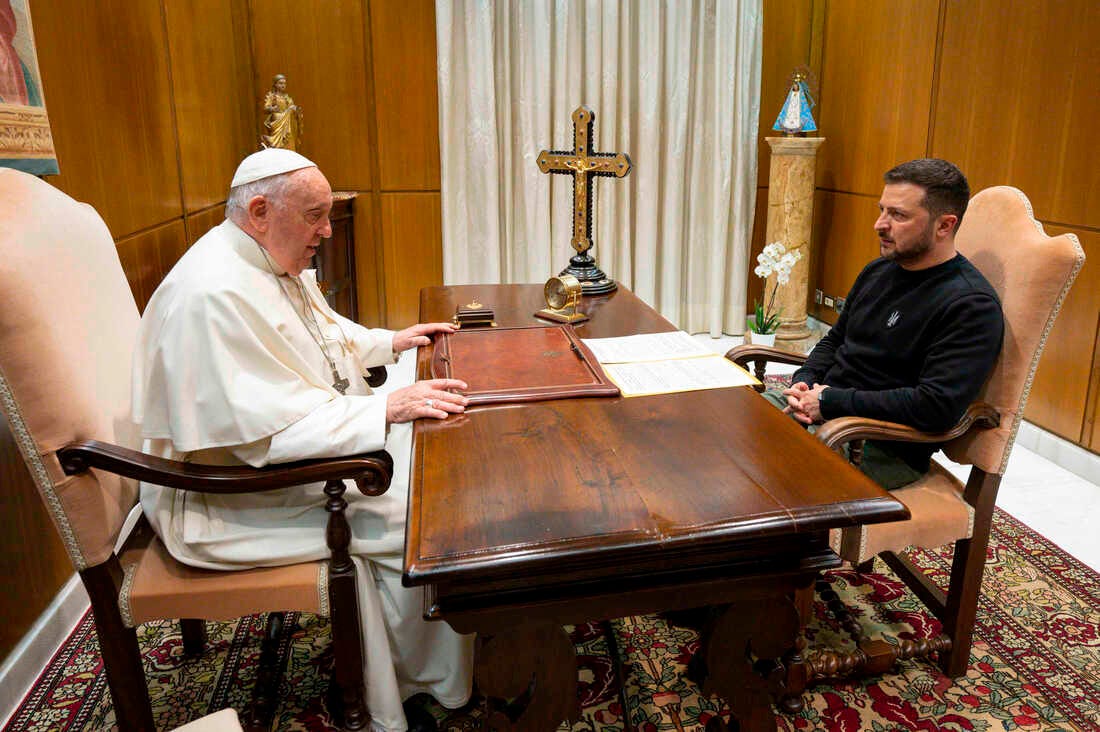Pillar subscribers can listen to this Pillar Post here: The Pillar TL;DR
Hey everybody,
Greetings from Baltimore, where the fall plenary meeting of the U.S. bishops; conference is in full swing.
The bishops have been meeting in committees, and will begin today their public sessions, with a few things of note on the agenda. More on that in a minute.
First, let me remind you that The Pillar Podcast will have a LIVE SHOW EXTRAVAGANZA in Washington, DC, on this Thursday, November 14.
We will break down the fall meeting of the USCCB, and have a lot of fun, on November 14 at 7pm at the Royal Sands Social Club.
—
Next, let me tell you about Dr. Gertrude Barber — a holy woman about whom the bishops will receive a presentation today, as part of her canonization process, which began in 2019.
Barber was an Erie girl, from the little northwest corner of Pennsylvania that sits northeast of Cleveland, Ohio on the shores of Lake Erie. She was first a teacher, and spent her entire career — and indeed her entire life — as an educator of the most extraordinary kind.
Born in 1911, she became a classroom teacher at 22 years old. She earned some graduate degrees, and along the way became her public school district’s “home & school visitor.”
This meant, among other things, that Barber visited homes where children with disabilities lived — some intellectually disabled, some deaf, some blind.
For the most part, they weren’t able to go to school. In some cases, it was her job to sign off on plans that would see them separated from their families — even as young as two — and sent to institutions in other parts of the state, where it was believed they would be formed for the best chance at life.
That didn’t sit right with Barber. She believed — because of her faith — that human dignity, and respect for the sovereignty of the family, required something more.
“Because we had hope, and we had faith, and we had love for these children, and felt they really shouldn’t be sent away from home at the age of two, because they were handicapped, or deaf, and blind — but that we should establish something in Erie,” she later said.
So she did.
In the early 1950s, when institutionalization was de rigueur, she started meeting with parents. By 1952, she had one room at the YWCA in which to offer classes for children with intellectual disabilities. While many other people disagreed, she was convinced those children could learn a great deal — and she was convinced that should be her life’s work. It was, for her, a vocation.
Within a decade she had a lease from the city of Erie for a shuttered hospital, to be a school and a workshop for adults with disabilities. Eventually she got the deed. In true Catholic fashion, she got the building after she and mother put Miraculous Medals on the property, trusting that Our Lady would take care of the rest.
Her work attracted a lot of attention. During the Kennedy administration, she ended up on a presidential commission. That visibility let her raise money, and that money let her open more programs and satellite centers, and even residential facilities for adults with disabilities — places for them to live that were not hospitals or “asylums,” but communities of people living in friendship together.
“The institution had four walls and it had a fence around it. We did not want four walls and we did not want a fence around it. We wanted to be the community.”
Those centers begat more centers, and her work spread concretely across Pennsylvania. But in many ways it spread much further — because she became a pioneer, on all kinds of levels, of what we now call special education. Many things that are now standard or typical for children with disabilities are the result of her vision and hard work.
And all of that was because of her living faith. Here’s how she framed her own work:
“Almighty God says that disabled individuals are truly my children, are truly leading the way to heaven — and you’d better get on the bandwagon so you can get there too.”
Barber died in 2000, a hero to the people who knew her — and a lasting disciple of Jesus Christ.
Today Bishop Larry Persico of Erie will present her life to the bishops, asking them whether her cause for canonization should proceed. I expect they’ll support that idea overwhelmingly.
The news
In addition to that consultation, the bishops on Tuesday will vote on a new treasurer and some committee heads— Ed and I made election predictions earlier this month.
They’ll hear from the apostolic nuncio and from USCCB president Archbishop Timothy Broglio. They’ll be presented with a new three-year “mission directive” — the strategic plan that, if they approve it on Wednesday, will define most of the USCCB’s staff work and budget priorities for the next three years.
They’ll also get an update on the U.S. implementation of Pope Francis’ plan for the designation of catechists as a stable instituted ministry in the Church. They’ll prepare to approve a new translation for Marian crownings.
Tomorrow they’ll discuss the prospect of a new USCCB document on laypeople who work or share in the mission of the Church, an update to 2005’s “Co-Workers in the Vineyard of the Lord.” They'll talk about CCHD and Dignitas infinita.
That translation is actually the last piece of a project in the works for a couple of decades, to approve a new translation of the entire Bible for liturgical use. This week’s vote on the translation is the capstone of a lot of work, for a very long time, involving a lot of people.
But, of course, it’s not the last step. If the bishops approve the text, it’ll go to the Dicastery for Divine Worship for approval. If it gets approved, it will form the basis of a new lectionary, which would eventually go into use, after its own Vatican approval.
That means we’re CLOSER to a new, approved, published and available translation of the breviary — a project the bishops have been working on for more than a decade.
Still, this is neither horseshoes nor hand grenades, right? What does close mean?
Well, last year, the USCCB told me that if the bishops approve the New Testament this week, and if Vatican approval doesn’t take too long, there could be new breviaries, in your hands, by Advent 2026.
The wait continues. Read about it here.
[And here’s just a reminder. So far as I can tell, we at The Pillar are the only journalistic outlet in the world paying attention to this, and providing you useful and thorough updates on the breviary project — which impacts many of your actual lives.
Think about it. No Pillar, no updates — because we make this for people like you. So if you value that stuff, and you’re not a paid subscriber, maybe today’s the day. It’s not like you need the money this year for a new breviary.]
And while they talk about politics, incoming Catholic vice-president JD Vance is surely part of the conversation. Especially because while Vance has long-identified as pro-life, and spoken out about abortion for much of his political career, the veep-to-be also took time during the campaign to defend a Trump idea: an IVF insurance mandate, that would likely be just as controversial as the Obama-era contraception insurance mandate.
Now, for the moment, Vance has defended that policy exactly one time. But if it comes up again, and if the Catholic veep becomes its spokesperson, that could lead to some uncomfortable questions for the bishops.
You can read my analysis about that, right here.
Bashir is one of at least five canonization causes underway for victims of Islamist terrorism. All of them are powerful stories.
Luke Coppen breaks them down, right here.
Welby, who has led the Anglican Church of England since 2013, is mentioned almost 150 times in the report.
So what does the report say? What does it mean for Welby? And what can be learned about child protection among the Anglican communion?
—
More than 200 people have died in Spain amid historic flooding in the Valencia region. As the Church steps up to provide humanitarian relief and pastoral care, Valencia’s archbishop told The Pillar that aid efforts might “make credible” the Gospel among non-practicing Spaniards impacted by the flood.
And indeed, Spanish priests and religious have plunged into relief and clean-up efforts — making the Church visible to a culture which has increasingly considered it an irrelevant institution?
What will be the impact? Too soon to say.
Character is conduct
A Florida woman will be sentenced this week in a federal courtroom, after she pled guilty to embezzling nearly $900,000 from the parish where she worked, during just a six month period that began last year.
With the money, Heather Darrey bought a boat, $50,000 of concert tickets, and spent $300,000 making big principal payments into her mortgage. In other words, she stole money, paid for a lot of stuff, and got caught.
But after we published that story on Friday, Darrey’s own sentencing memo appeared in the federal database — this is the packet of arguments and character references which argue that she should get limited jail time.
I was struck by one letter, written by an American bishop. This bishop, who noted that he had known Darrey for a while, urged that Darrey not be sentenced to prison at all.
The bishop wrote that “the news of Heather’s deception and theft broke my heart.”
“It is my belief that the charges for which she’s admitted guilt are not consistent with her character,” the bishop wrote.
That struck me — because I found myself wondering how we know anything about a person’s character, until they’re presented with an opportunity to steal $900k from a parish and probably get away with it.
It seems to me that everything before that is just pretense. And it seems to me that realizing that is critical to ecclesial reform.
Here at The Pillar, we cover issues in the Church in need of reform. This means we end up covering a lot of scandal-causing issues — among them clerical sexual abuse and coverup, financial malfeasance at the Vatican, and financial malfeasance at the local parish.
In near every case the Church’s first-blush institutional response is usually some form of disbelief — that a person well-known to ecclesial leaders might, in fact, be capable of grave sin. This is consistent. And usually, so is the response — like this bishop’s — that this person has a good character. Even if they did this, it’s not who they are.
That’s an optimistic anthropology, but it’s also a dangerous one.
In Veritatis splendor, Pope St. John Paul II calls attention to something he calls the “fundamental option” — the anthropological and moral theory that each person makes a kind of deep and fundamental(!) choice for or against God, which is not mitigated or vitiated by their actual moral choices, however grave.
The danger of that vision, JPII said, is that it minimizes our awareness of sin and the danger it poses — it allows us to think that we’re really “good people” even if we don’t act for the good, or choose the good.
In the Church, it seems to me that fundamental option theory is often an impediment to accountability, and thus reform. A person is accused of a grave thing — say, an official of the Vatican Secretary of State seems to interfere with a disciplinary process in order to restore a convicted child abuser to the clerical state — and very little is said, because either the priest is thought to be really a “good person,” or the official interfering with justice is.
We are a Church of mercy. And there’s a reason why Hugo’s Monseigneur Bienvenu is seen as a saintly character. It is good when the Church can exercise mercy. But a disordered mercy can lead to permissiveness, to moral laxity, and to injustice against the entire community, especially the poor.
I can’t say, of course, whether this woman should go to prison. I don’t hope that she will. But I will say that we have documented many instances of big (sometimes super big) theft in the Church for a couple of years now. And we’ve learned that one reason people steal from the Church is that there’s little deterrence — people who get caught, clerics or lay, often get off very easy, and usually because of the intervention of ecclesiastical officials.
That’s not sustainable. It won’t lead to less theft, it will lead to more. And promoting the idea that acts defy our character, rather than reveal it, won’t help any of us get to heaven.
That’s a lesson — by the way — worth one hell of a lot more than $900k.
—
Please be assured of our prayers, and please pray for us. We, all of us, need it.
Yours in Christ,
JD Flynn
editor-in-chief
The Pillar






